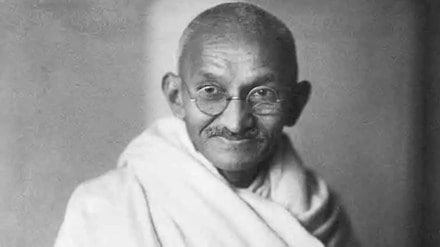Mahatma Gandhi Absence in 1st Independence Day 2024: The date of 15 August is the most historic day in the history of India because the day marked when India got the independence from 200 years long British colonial rule on 15 August 1947. The day is historic as the people of India celebrated the success of their long, peaceful and persistent struggle to win the freedom and recognition as a sovereign and independent nation. During the freedom movement there were a lot of tall and influential figures who were leading the movement. But the tallest of all was Mohandas Karamchand Gandhi (Mahatma Gandhi) who actually shaped the freedom movement and adapted the non-violence as the primary policy and that’s why people remember him as the Father of Nation.
But you know that interestingly, when India got independence at midnight of August 15, 1947, Mahatma Gandhi was not present at the moment to celebrate the country’s first event, Independence day. Here is why.
Why Gandhi was absent on the first Independence Day:
Father of the Nation unfortunately did not have the opportunity to witness the inaugural Independence Day celebrations. This was because he was not present in New Delhi to partake in the historic festivities.
In an insightful opinion piece, Tushar Gandhi, the grandson of Mahatma Gandhi, elaborated that his grandfather was, at that time, situated in Kolkata (formerly known as Calcutta). Gandhi was deeply engaged in efforts to restore peace and quell the intense communal unrest that had erupted as a result of the Partition. During this tumultuous period, he was reportedly undertaking a hunger strike in Kolkata as part of his mission to address the riots and promote harmony amidst the chaos.
Tushare Gandhi further elaborated that On August 9, 1947, Mahatma Gandhi arrived in Calcutta. A delegation of Muslims, led by Mohammad Usman, head of the Calcutta District Muslim League, approached Gandhi, urging him to stay in Calcutta to ensure the safety of the Muslim community. Gandhi responded that he would postpone his trip to Noakhali if they could guarantee the safety and security of the minority community there. He also warned that if violence persisted in Noakhali despite their assurances, he would undertake a fast unto death.
Gandhi met with H.S. Suhrawardy, the former Premier of Bengal, who shared his concerns about the safety of Muslims. Gandhi requested Suhrawardy to provide assurances for the safety of Hindus in Noakhali if he wanted Gandhi to remain in Calcutta. Suhrawardy agreed. Gandhi then told him, “I will stay if both you and I are committed to living together. We must work until every Hindu and Muslim in Calcutta can return safely to their homes. Our efforts will continue until our last breath…”
As per Tushar Gandhi’s opinion piece, On August 14, Mahatma Gandhi called on everyone to join him in a 24-hour fast, dedicating the day to prayer for India’s welfare and to the practice of hand-spinning.
The following day, August 15, 1947, which marked Independence Day, Gandhi began his day at 3:45 a.m., adhering to his usual routine. Although he received numerous congratulatory messages, he chose not to celebrate. Instead, he devoted himself to prayer, fasting, and spinning khadi. Meanwhile, a large crowd gathered around the Governor’s mansion in Calcutta, laying siege to it despite the fact that its current occupant was an Indian, C. Rajagopalachari. On Independence Day, the newly appointed Governor of Bengal was effectively held hostage in the Raj Bhavan for several hours by Indian demonstrators.
